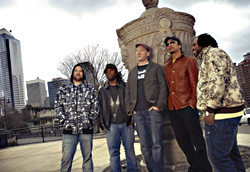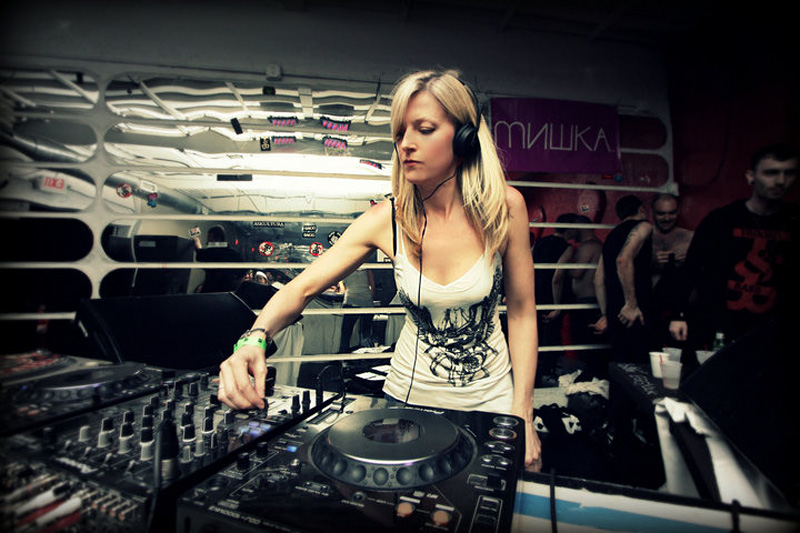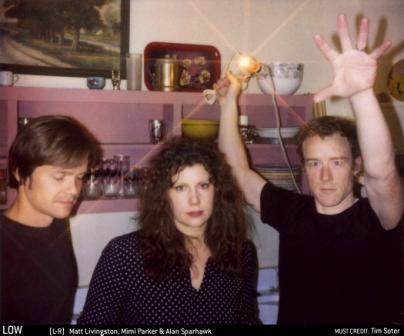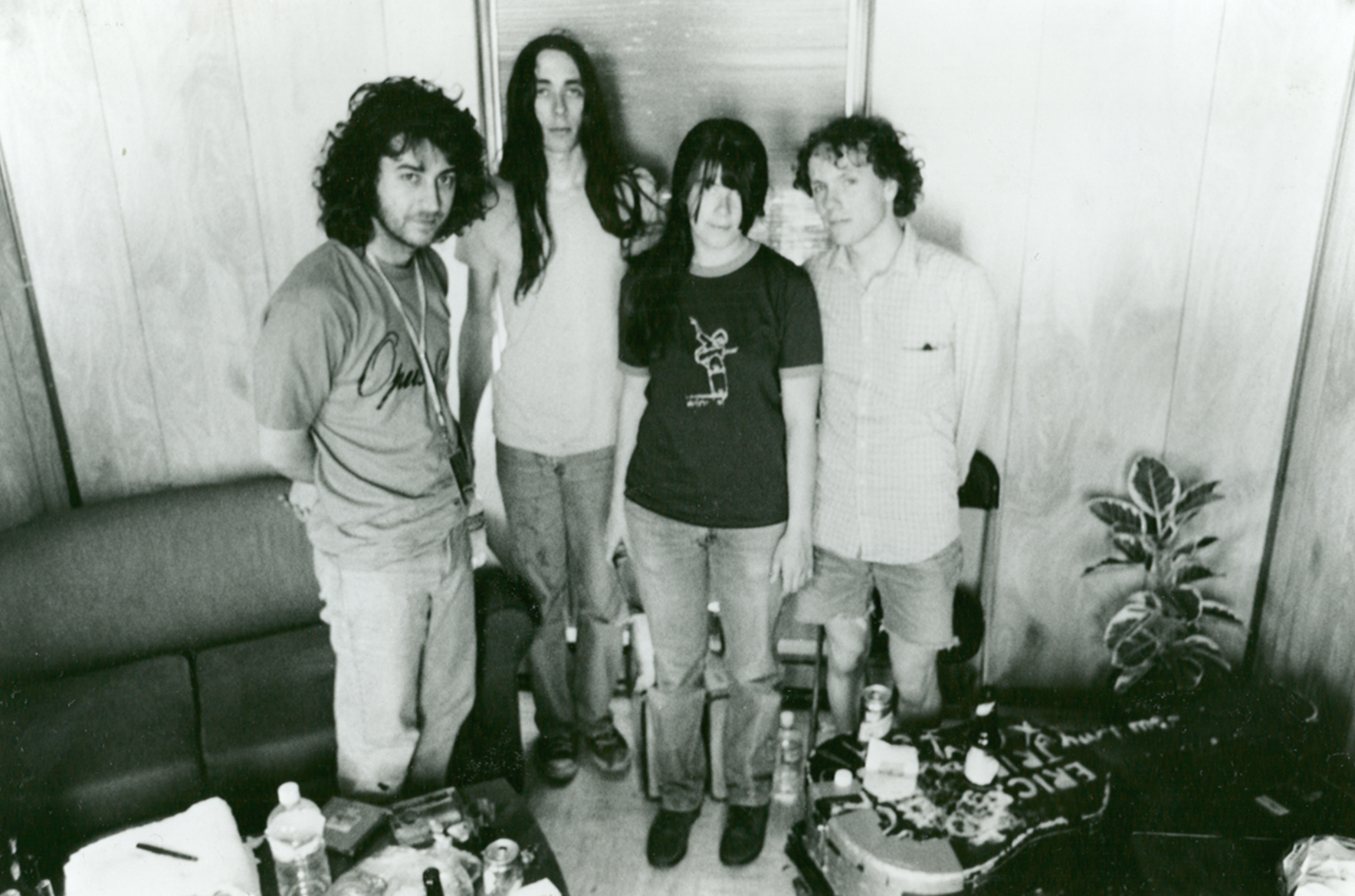On a humid night last July, I stood outside my apartment building on Bellevue Avenue, debating whether or not I should go to the Baltic Room alone. I was all dressed up, and tired of flailing around to Amy Winehouse with only the voyeur in the building across the street for company. It’s only a block away. Don’t be lame, I told myself. So I walked that block to Safari, a monthly party hosted by local crew SunTzu Sound, and ended up on a journey I would’ve regretted missing. Detroit-based producer Waajeed, of the Platinum Pied Pipers, was DJing a set list of astounding randomness and quality, moving the crowd through hip-hop to a house or nu-jazz groove effortlessly. That’s what SunTzu’s Safari audience—a core of about 150 people—might’ve expected, but Waajeed’s set was uncommonly good. I forgot about ordering another drink and commenced dancing with strangers. The capper: “Take Control,” by R&B songbird Amerie, as the lights on a roomful of frenzied dancers went up to a chorus of boos.
It’s the kind of vibe I’d always been after in Seattle. One crew that’s been able to make true clubland magic (i.e., dancing) happen consistently outside of Pioneer Square is SunTzu, a collective of DJs, producers, and musicians who’ve been playing and creating together since 2002. As they gear up for their five-year anniversary show, featuring BBC Radio 1 DJ Benji B, I sit down to get the stories of producer/DJs AC (Aaron) Lewis, Atlee, and Dr. J (aka 1 Luv, who lives in Vancouver, B.C.), DJ J-Justice, and percussionist Jayson Powell. We are gathered at Smith over sweet-potato fries and whiskey. The only rule: drink every time someone says “soul.”
The beginning was auspicious. In 2000, Atlee was working at the Belltown nightclub Nation and being occasionally trainspotted by Boston transplant and DJ Jason Justice, who was DJing with Lewis. “I was buying house records, spending all this money on music that I didn’t really listen to except when I went to my crappy little club gig and played. So I took a break, and during that time discovered Gilles Peterson’s radio show, Benji’s [radio show], and that started to get reflected in what I was doing with Aaron,” says Justice. Inspired by the then-blossoming sounds of broken beat, he approached Nation about starting a new Friday night—which turned out to be Atlee’s weekly. “They took my night over!” Atlee, who’d been working more futuristic sounds into his hip-hop sets, mock cries. There were no hard feelings, though, and they soon noticed each other at back-to-back Jazzanova and Bugz in the Attic gigs. “We were surrounded by these amazing artists that work as a collective,” says Justice. “And by the end of the weekend we thought, we should do something like that.”
Since then, SunTzu Sound have become not only harbingers of a new sound in our city, but unofficial ambassadors of that sound in the United States itself, where trance and house DJs still draw the most enthusiastic numbers. The group’s first party, Future Soul at the Baltic Room, was inspired by Rich Medina’s annual “Jump N Funk” party at Miami’s Winter Music Conference. “To see the mix, the different races of people getting down together for eight hours straight, listening to hip-hop, Fela Kuti, house, Crystal Waters…we said, ‘All right, it’s time to start a new night. We’re going to book whoever we want and make it as eclectic as we want as long as it’s soul music,'” says Justice.
Now, every March since the conference, SunTzu open the party for the folks who inspired them, Jazzanova vs. Bugz in the Attic, and each year they get the “You’re from Seattle?!” reaction. The year I met them at the conference, 2006, their single “Black Daylight,” which is backed with AC Lewis’ “Tickles,” caused a commotion that’s still raved about in those circles. SunTzu communicate the musical sophistication of people who live in a more culturally diverse place like West London, the genesis of the “broken-beat” sound. Powell describes that as “syncopated rhythms… soul music that’s put off-kilter. Soul usually has this backbeat and this pocket, and with broken beat, that pocket is shifted. So it makes you move on the off-beat rather than the downbeat.” The most popular artists in the genre include Bugz, Seiji, Domu, Kyoto Jazz Massive, Ubiquity Records’ John Arnold and Jeremy Ellis, and Recloose, all of whom Sun Tzu have met and/or played with (many of those connections fostered by Red Bull Music Academy’s successful 2006 stay in Seattle).
What’s most interesting about SunTzu and the guests they bring to town isn’t the links they make between soulful genres. Anyone with the Internet, a few bucks, and some time on their hands can create the public mystique of having encyclopedic taste. What’s exciting is that they can make a dance floor bump for hours to songs not known to the dancers, who are blissfully unaware of the connecting but very real threads between, for instance, rare grooves and populist R&B. They pull off those combinations with stealth and panache.
Safari, which ran for a year and a half until last August, was Sun Tzu’s most successful night to date. Like the rest, it’s being followed by a six-month-or-so break while the guys focus on production and the SunTzu Sound label. Safari could always be expected to deliver a mishmash of styles—when asked to describe their sound in five words, Justice says, “Explorations in soulful dance music”—but some sets, like Waajeed’s, were simply out of this world. “He played crazy disco,” says Atlee. “He didn’t play anything we expected him to play, and people ate it up.” Powell may be the most humble and insightful about the crew’s success thus far, since he spends more time listening to and following the grooves with his live drumming.
“The night transforms. It starts off mellow, you vibe, and once everyone gets that vibe on that dance floor, then the energy pops out,” he says, “And we get a crowd that really likes to get out there and dance.”
And, there are more women per square foot at a SunTzu event than you’ll find at any other subgenre club night. Atlee has an answer for that, and surprisingly, it has nothing to do with “soul.” “That’s ’cause we’re the sexiest DJs in the city,” he says. Cocky, for sure, but he might be right.








